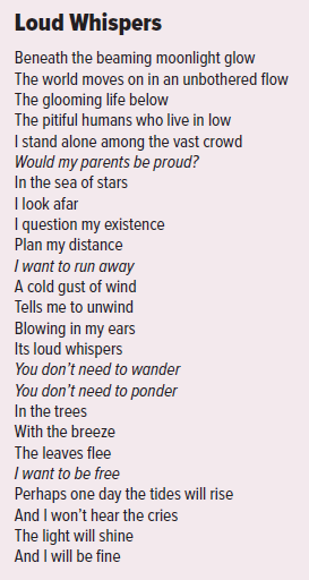UConn ECE Wallace Stevens Poetry Contest
By Sean Frederick Forbes
The theme of this year’s ECE newsletter “Doubling Down on Success” reminded me of the card game blackjack. My grandfathers and uncles used to play blackjack during summer family gatherings, so I was familiar with the phrase “doubling down.” In blackjack, the term means to double one’s original bid in exchange for only one more card; it’s a move that suggests great surety of winning, despite the potential risk of losing. The Merriam-Webster dictionary offers a secondary definition of the term: “to become more tenacious, zealous, or resolute in a position or undertaking.” With all that said, perhaps the theme for this essay can be: “Doubling Down on Poetry,” since a poet must set to the page a sense of surety in their written creation despite the potential risk of being misunderstood by others. Writing poetry in any form or style is no easy undertaking especially in the high-tech world we live, in which digital distractions abound. There will always be poets, committed to painstakingly crafting verses to be read.
This year the ECE Wallace Stevens poetry contest received twenty-three poetry packets. My fellow judges, Sophie Buckner and Anh Le—both PhD candidates in the English department at UConn and creative writers—and I selected four poetry packets by Brooke Vazquez, Yimin Wu, Mikayla Vazquez, and Jenny Li as the first, second, third, and Honorable Mention prize winners, respectively. On a cold, yet sunny, Friday morning in February, Sophie, Anh and I held a Zoom meeting to deliberate and select the winners, and the three of us noted how enriching, innovative, and vibrant all of the submissions were. Four poets stood out to us since each packet captivated our individual and collective poetic sensibilities.
The title of Brooke Vazquez’s poem “Alphabetic Entomophobia,” introduces the reader to a different type of alphabet, one in which the irrational and persistent fear of various insects, is front and center with dazzling details that act as verbal and visual somersaults when read aloud. What’s most striking in these thirteen couplets is the merging of scientific and poetic language to create a rhythmic flow to the narrative: “uliodons savored her physique with silk / veins crawl with starving, matured maggots,” causing the reader to engage with the dynamic lives of insects in nature.
In five distinctive stanzas, Yimin Wu’s “Pomelo Peel” offers a complex and layered braided narrative as a speaker confronts cultural and social constructs regarding skin color, ethnic identity, and otherness. In the final stanza, the speaker eats a pomelo, its juices “sewing between cracks within / The rinds of my amber, pomelo heart,” a heavy image to decipher.
Mikayla Vazquez’s “Land of the Brave Lord” is a narrative poem written in four sequences about the Indigenous peoples of South America and the Caribbean, the Arawaks. Each sequence acts as a portal into the spiritual and ritualistic aspects of their lives. The speaker states, “The stars were crafted for the Arawak people, cultivated with crystals gathered from the darkest of caves, and the gold at the depths of their rivers;” a truly mythic-poetic vision.
Jenny Li’s “Loud Whispers” offers a seemingly simple end rhyme scheme in semi-regular rhyming couplets, which upon first glance one might not detect the cascading rhetorical and sound effects established. Toward the end of the poem, the speaker thinks about the intensity of the battery of loud whispers, and states, “In the trees / With the breeze / The leaves flee / I want to be free;” with a gift of hope offered in the final image.
First Place
Brooke Vazquez
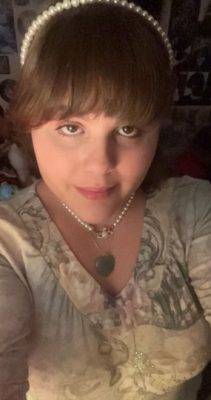
Brooke Vazquez, a junior at Rockville High School, has earned numerous accolades for her work, including a platinum award in the 2020 Connecticut Student Writer contest, two Silver Keys from the 2021 and 2022 Scholastic Arts & Writing contest, an honorable mention in the 2023 Nancy Thorp Poetry contest, and many more. Brooke’s future in the literary world looks promising as she continues to pursue opportunities to innovate and promote her work.
“I love writing, specifically the genre of poetry as it is a major outlet for me and a way to express my feelings on greater issues, primarily for women. For me, writing is the ability to paint a picture of a moment in time using words, and I try to implement that notion in my own work.”
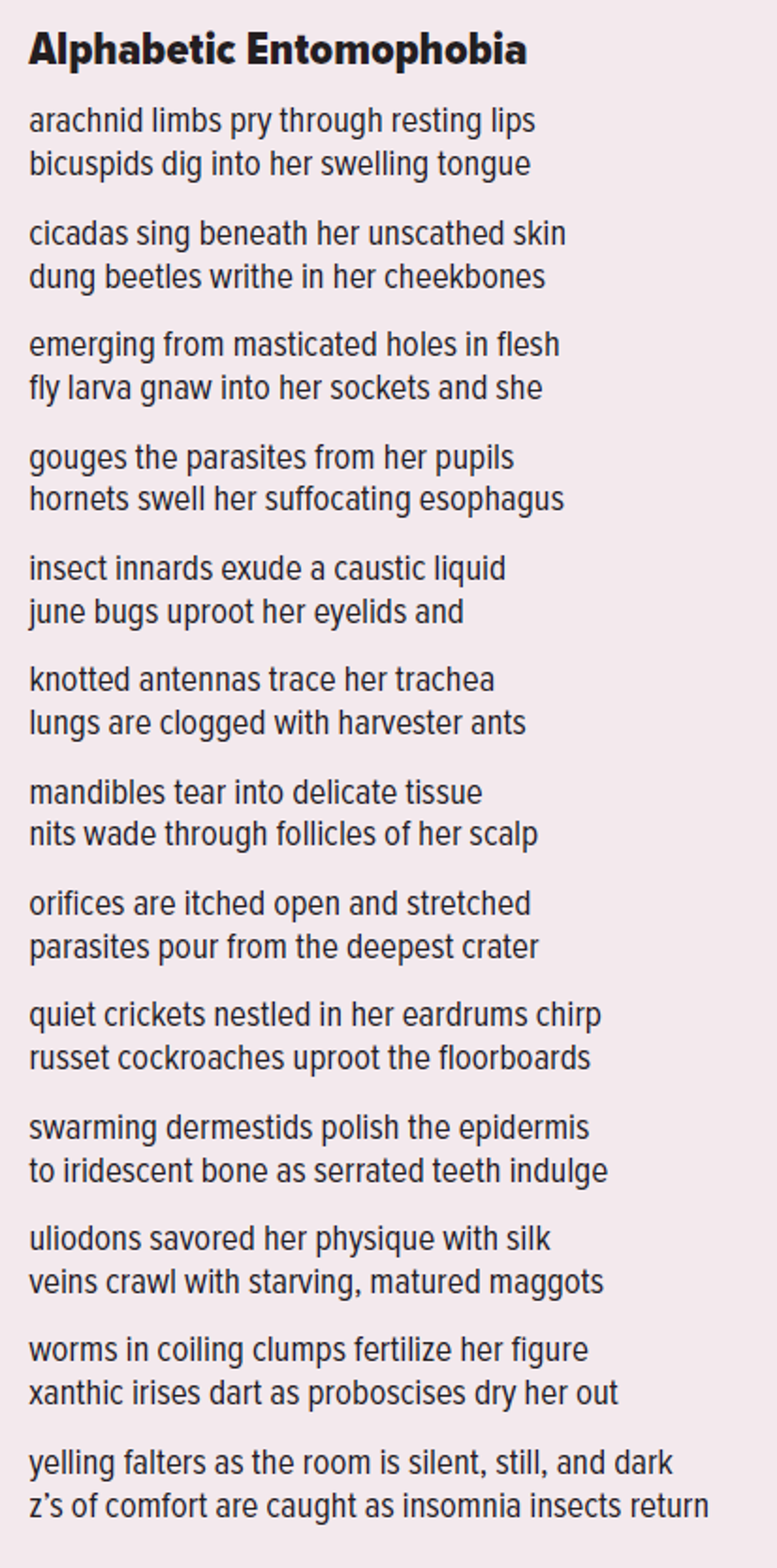
Second Place
Yimin Wu
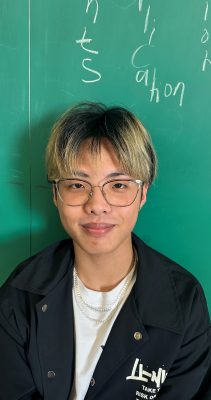
Yimin Wu is a junior at Hall High School and the Vice President of the school’s Creative Writing Club. He enjoys writing poetry, reading manhua, and listening to music.
“Through writing poetry, I’ve formed a stronger sense of self-identity and shared my cultural heritage. My pieces often deal with envy and Chinese-American struggles, which I hope to share with the rest of the world and foster a little more understanding of the immigrant experience.”
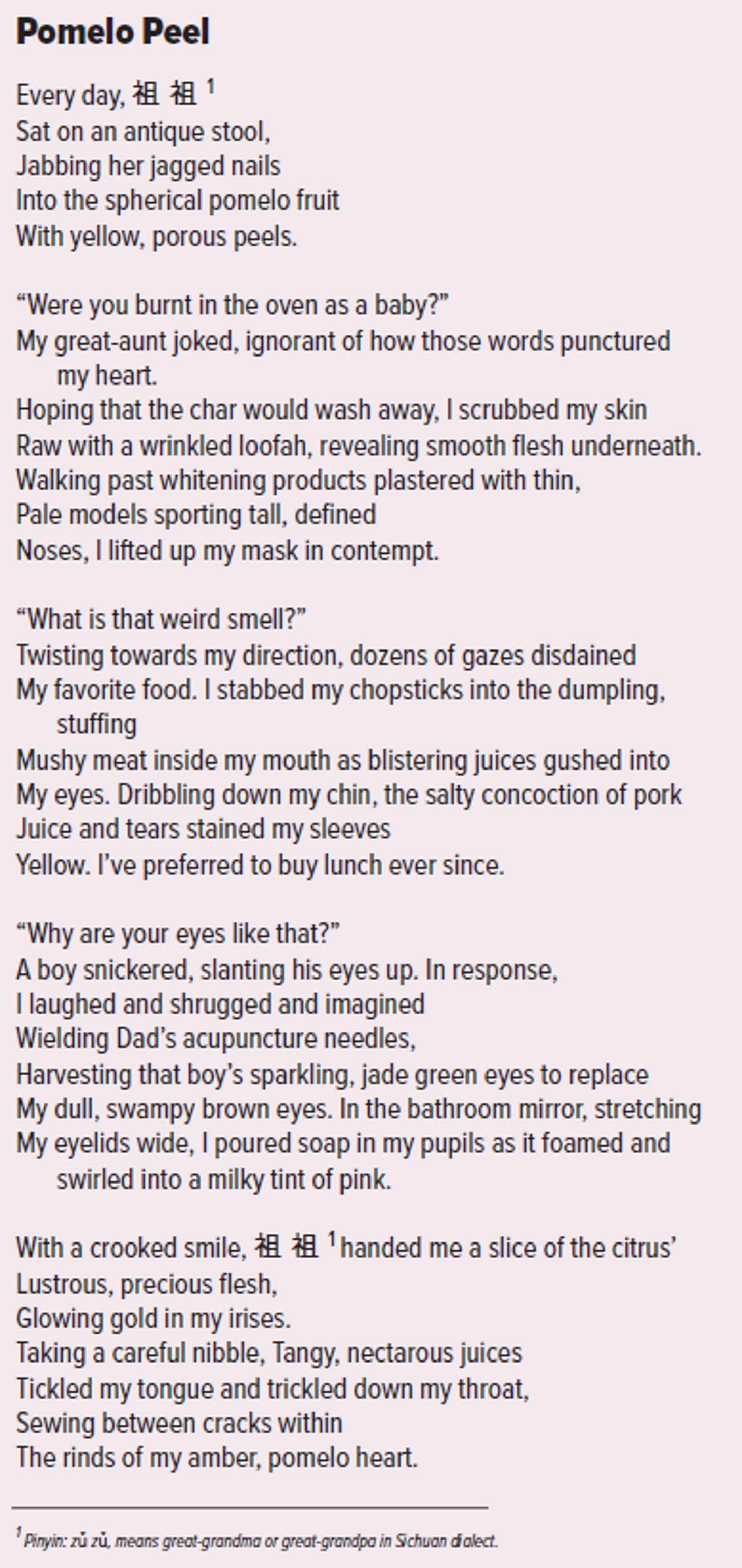
Third Place
Mikayla Vazquez
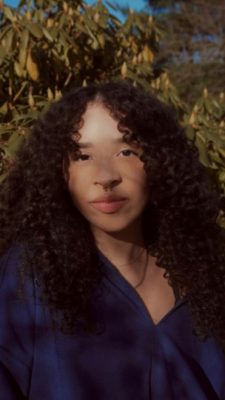
Mikayla Vazquez, a junior at Manchester High school, is most recognizable by her untamed curly hair, and visceral love for creative writing. She enjoys creating a variety of poems and prose that explore the human experience, and all the happy, strange moments within it. When she’s not buried in her comforter reading, she’s either thrifting, or not drinking enough water.
“I gifted my mom a poem for Mother’s Day in 2022, and it was the first time I had ever seen her cry. It made me realize just how much words are a way to make people feel a range of emotion, and poetry is the most bare, and deeply personal form.”
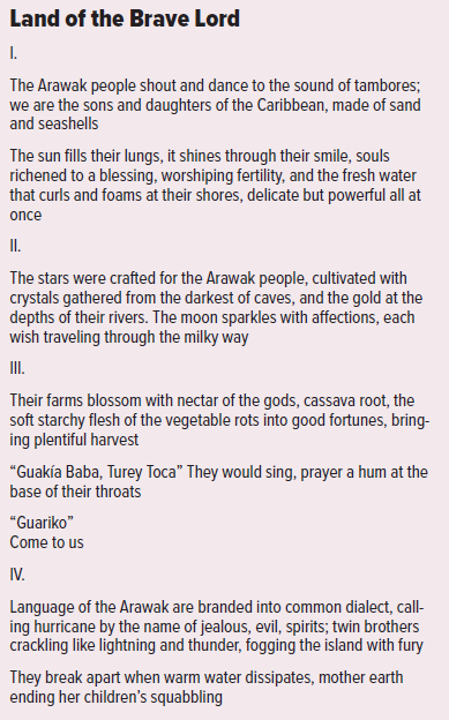
Honorable Mention
Jenny Li
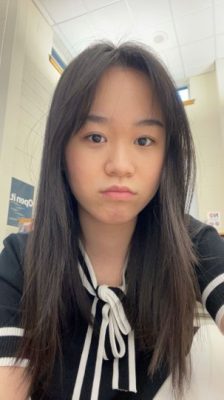
Jenny is a high school senior at Montville High School. At Montville, she studies various AP and ECE classes in order to feel prepared for her future pursuit in nursing. Although writing isn’t one of her passions, she does spend some time whenever she is free to write down ideas and poems that come to her. For the most part, she spends her free time either studying, at work, or through social media consumption.
